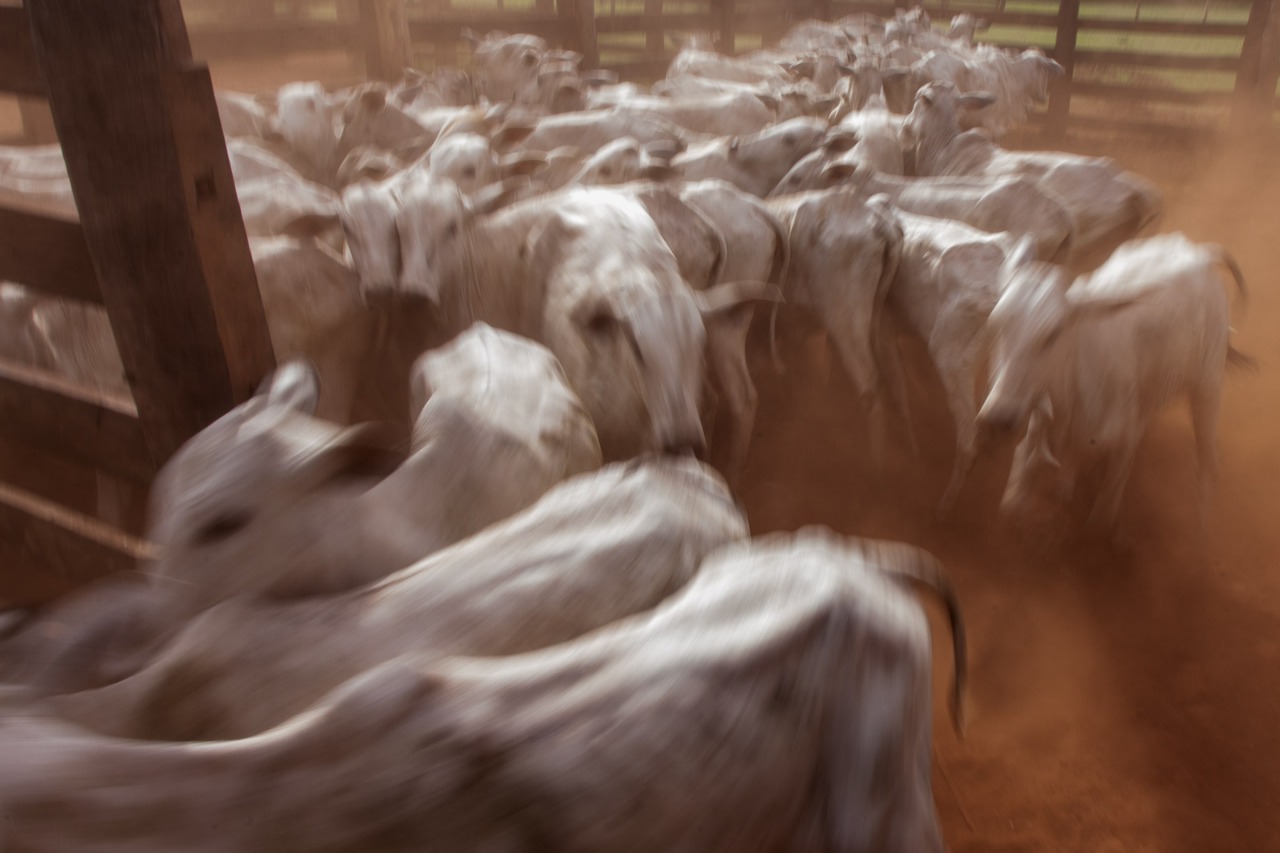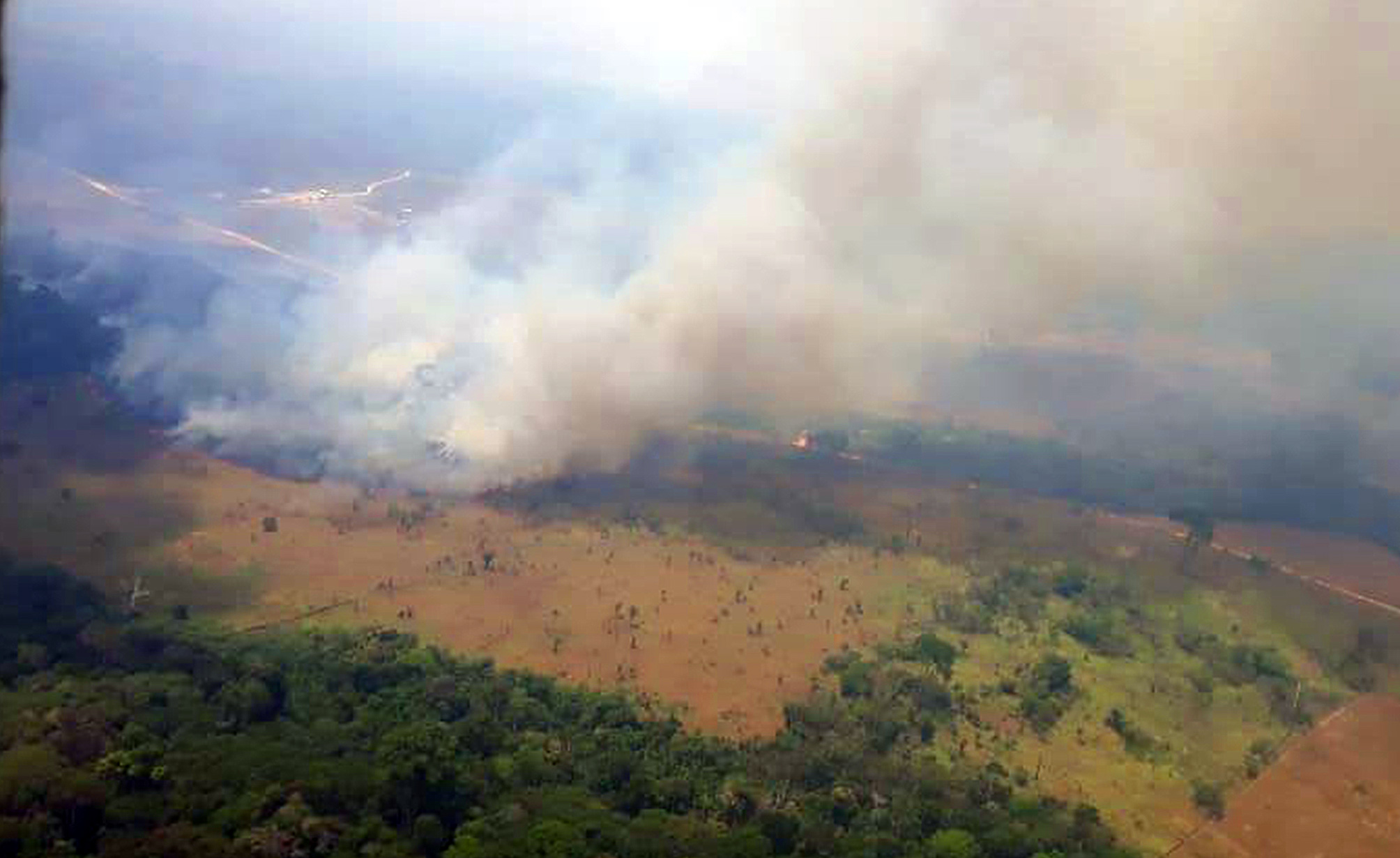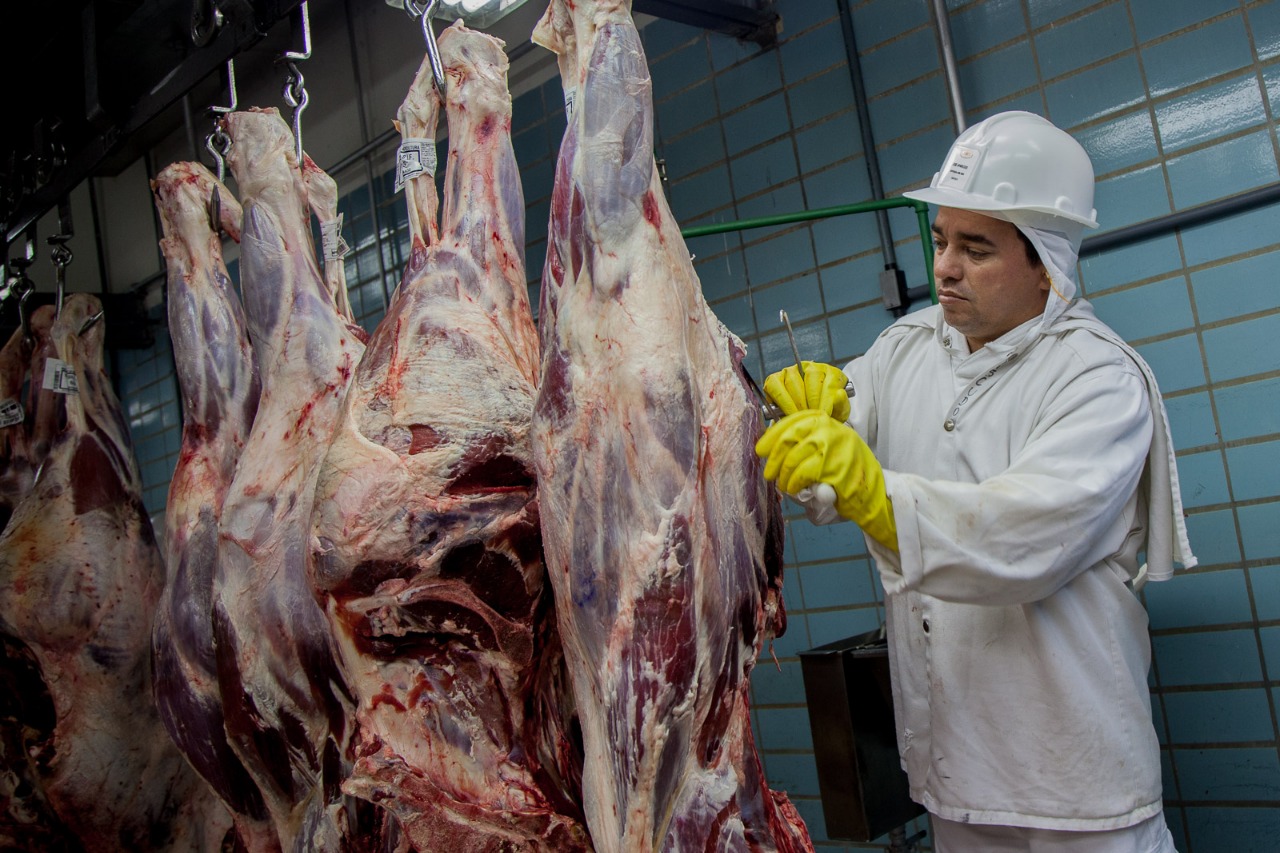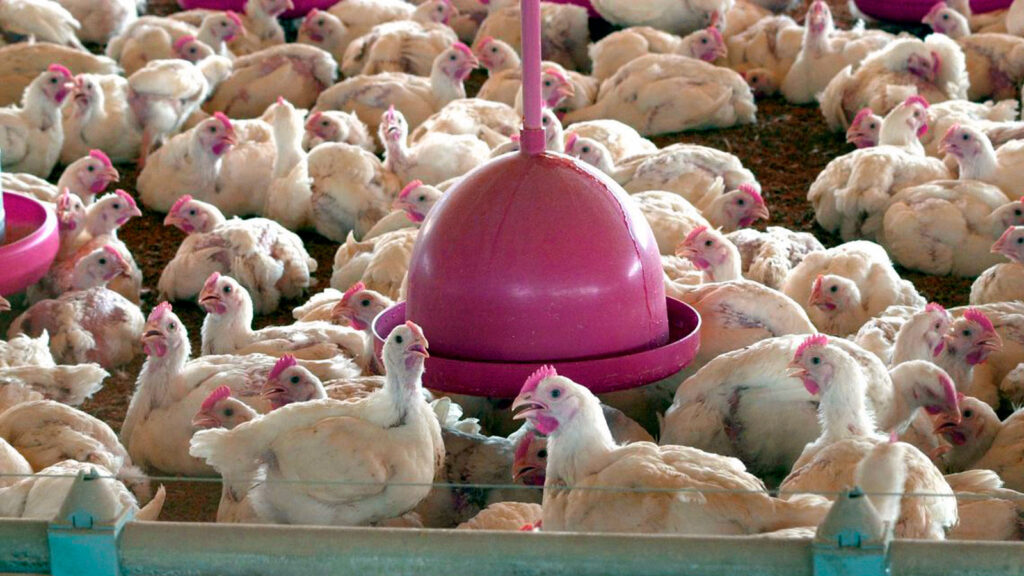Large Brazilian meatpacking companies operating in both the domestic and foreign markets buy cattle from ranchers fined in top deforestation areas, which are now at the epicenter of burnings in the Amazon.
Fire – one of the stages of deforestation – is used to open space for pastures, as has been recognized even by authorities in the affected areas. ‘Those are forest burning to make pastures’, said Pará governor Helder Barbalho (MDB) about the recent fires in his state. Nine out of ten fires in agribusiness areas occurred on cattle pastures, according to estimates made by Greenpeace using data from Brazil’s National Institute for Space Research (INPE).

The Triunfo do Xingu Environmental Protection Area (EPA) in Pará provides evidence of the relationship between deforestation, burnings and livestock. It was the conservation unit with the largest number of forest fires this year. The two municipalities that overlap its territory – São Félix do Xingu and Altamira – rank 1st and 3rd in number of burnings respectively. The former town has the largest number of cattle heads in Brazil (2.2 million according to 2017 IBGE data).
It was precisely in this area that Repórter Brasil found two examples of how farmers charged with environmental crimes link deforestation and burnings in the Amazon to global meat processing companies.
One of the cases involves rancher Adriano José de Mattos. In January 2019, IBAMA inspectors found animals from his property grazing on a 106-hectare illegally deforested area within the EPA. The site had already been embargoed three years earlier for illegal deforestation. According to the inspectors, the Limeira Ranch – Mattos’s property located three kilometers away from there – served as the operational base for exploring the area.

In the month following the charges, meatpacking company Marfrig’s slaughtering unit in Tucumã, PA, received cattle from Mattos’s property. The animals were registered as coming from the Limeira Ranch, according to official cattle control documents consulted by the reporters. Another major player in the industry, Frigol, also purchased cattle from Mattos between March and July this year.
Marfrig said to Repórter Brasil that public information on the charges and embargoes against Mattos was still unavailable at the date of purchase, although the inspection had taken place 26 days earlier. ‘We depend on information from IBAMA’s website. This should happen in real time’, said the company’s sustainability director Paulo Pianez. Marfrig says it is committed to zero deforestation in the Amazon, to monitoring all suppliers via satellite, and to not purchasing cattle from areas embargoed for environmental crimes (see Marfrig’s full statement).
Currently, IBAMA’s website reports that the embargo against Mattos entered the public list of embargoed areas on January 29 – before Marfrig’s purchase. Repórter Brasil contacted IBAMA to learn its view on the company’s claim but received no response until this report was finished. Frigol, in turn, told the reporters that it adopts ‘all necessary controls to prevent any purchase of animals that are not in conformity with standards from being slaughtered in its industrial plants’ and that there are no illegalities in the purchase of cattle from Adriano Mattos (see Frigol’s full statement). The ranchers could not be reached for comment.
Clear Cutting and Fines
The largest company in the industry – JBS – also operates in Terra do Meio, a vast area in southeastern Amazonia that includes the territory of EPA Triunfo do Xingu. Rancher José Ronan Martins da Cunha is one of its suppliers and was fined by IBAMA in April this year. He was held responsible for destroying 50 hectares of native vegetation within the conservation area. In addition, he was charged with preventing the natural regeneration of the forest in an area previously embargoed for illegal deforestation.
In July 2019, JBS’s unit in Tucumã purchased cattle from Cunha. Repórter Brasil found out that the animals came from another property – the Barro Branco Ranch, according to official records. The property is located outside the EPA.

In 2016, a Ministry of Labor inspection charged Cunha with using slave labor at the JK Farm in São Félix do Xingu. Because of that, he was included in the federal government’s ‘dirty list’ of slave labor – a public registry with names of employers caught perpetrating that crime. They remain in the list for two years and then their names are removed if there is no recurrence.
Several companies – including JBS – publicly pledge not to buy raw materials from producers included on the ‘dirty list’. Cunha remained in the registry until April 2019. Therefore, JBS purchases found by Repórter Brasil occurred after Cunha had left the list.
Questioned by the reporters, JBS stated that it does not buy animals from farms involved in deforestation or invasion of indigenous lands, embargoed by Ibama, or using child labor or slavery-like conditions. The company also said that ‘it maintains one of the largest private monitoring systems for suppliers in the world, which covers about 450,000 km² by analyzing satellite images of the properties’.
Lack of Control
JBS and Marfrig are global leaders in production of animal protein. In addition to dozens of slaughterhouses in Brazil, they also have plants in North America, Europe and Australia. Internationalization of those companies gained momentum during Worker’s Party administrations through million-dollar loans provided by BNDES. The Brazilian government is one of the main shareholders of both companies.
Frigol, in turn, is Brazil’s fourth largest meatpacking company, with slaughterhouses in the states of Pará, Goiás and São Paulo. The company says it exports to over 60 countries.
The three companies say they adopt policies to abolish the so-called ‘pirate cattle’ from their purchases – that is, cattle from areas deforested without any license. However, this goal poses challenges. Lack of animal traceability allows ranchers to use legalized farms to conceal sales of cattle raised in illegal areas through false declarations of origin – a practice is known as ‘cattle washing’.
In addition, several deforesters sell cattle to other ranchers who specialize in the final pre-slaughter fattening. Meatpacking companies do not have effective mechanisms to ascertain where such producers have purchased their animals. In the state of Pará, JBS and Frigol signed an agreement with Federal Prosecutors pledging to observe a series of criteria to avoid cattle from areas with illegal deforestation, slave labor, invasions of public lands or traditional communities. The latest audit on the deal published by the agency found evidence of irregularities in approximately 19% of JBS’s purchases. In the case of Frigol, the irregularities reached 31% of total purchases. Marfrig, on the other hand, did not sign the agreement and therefore did not undergo audits. The company, however, states that other external audits ensure its practices are in conformity with its sustainability commitments.

